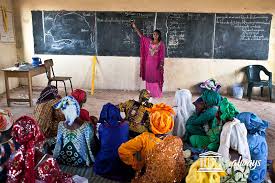The sixth Intern
UNESCO is dedicating the International Day of Education celebrated on 24 January 2024 to the crucial role education and teachers play in countering hate speech, a phenomenon which has snowballed in recent years with the use of social media, damaging the fabric of our societies.
The world is seeing a surge of violent conflicts paralleled by an alarming rise of discrimination, racism, xenophobia, and hate speech. The impact of this violence transcends any boundary based on geography, gender, race, religion, politics, offline and online. An active commitment to peace is more urgent today than ever: Education is central to this endeavor, as underlined by the UNESCO Recommendation on Education for Peace, Human Rights and Sustainable Development. Learning for peace must be transformative, and help empower learners with the necessary knowledge, values, attitudes and skills and behaviours to become agents of peace in their communities.
 God’s ways are not our ways – we have been told long ago and we know it, perhaps… from experience!
God’s ways are not our ways – we have been told long ago and we know it, perhaps… from experience! According to UNESCO, about 774 million adults lack the minimum literacy skills. One in five adults is still not literate and two-thirds of them are women. About 75 million children are out-of-school and many more attend irregularly or drop out. However, literacy is also a cause for celebration on the day because there are nearly four billion literate people in the world.
According to UNESCO, about 774 million adults lack the minimum literacy skills. One in five adults is still not literate and two-thirds of them are women. About 75 million children are out-of-school and many more attend irregularly or drop out. However, literacy is also a cause for celebration on the day because there are nearly four billion literate people in the world.
 God’s people throughout their history, God’s friends and God’s messengers – all needed to learn it:
God’s people throughout their history, God’s friends and God’s messengers – all needed to learn it: